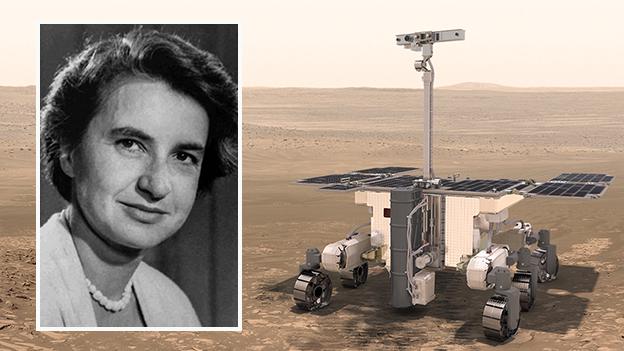Airbus replaces Russia in search for life on Mars
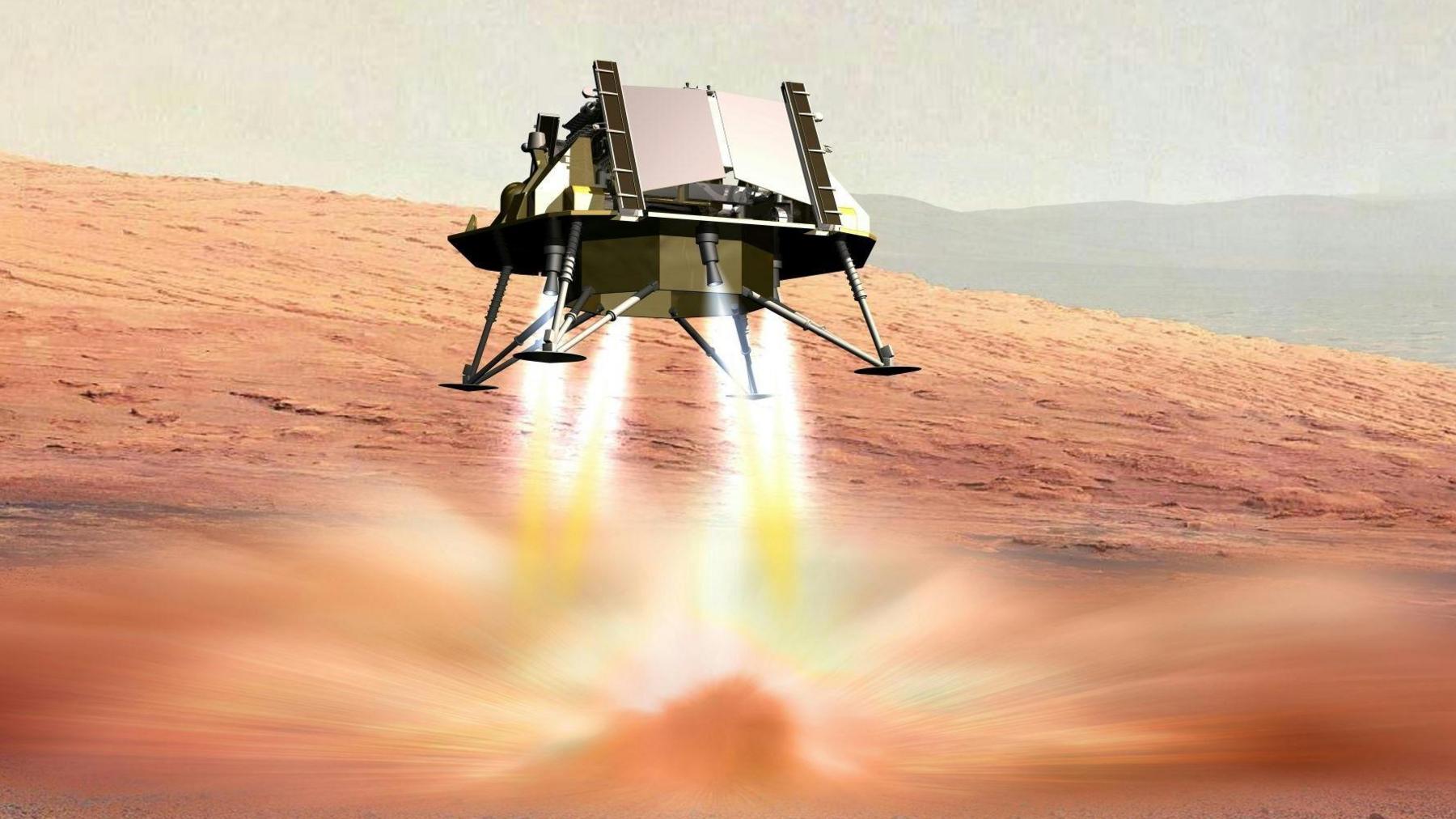
The rover is expected to touch down on the Mars surface in 2030
- Published
Airbus Defence and Space has replaced a Russian corporation in a European project to search for signs of life on Mars.
Scientists at its site in Stevenage, Hertfordshire, will work on the ExoMars lander which will place the Rosalind Franklin rover on the surface of the planet.
Russian state space agency Roscosmos had worked on a landing platform called Kazachok, but the mission was postponed after the country's full-scale invasion of Ukraine.
The landing platform developed by Airbus will land on the Mars surface using a parachute assisted braking system, before deploying the rover.
The ExoMars programme was expected to launch in 2020 as a joint endeavour between The European Space Agency (ESA) and Roscosmo.
The Russians had replaced American space agency Nasa who quit the project in 2012 due to changing priorities.
In addition to the landing platform, ESA planned to use a Russian rocket to get into space but sanctions made the joint project impossible and it was delayed.
Now Nasa will launch the rover in 2028, with a landing planned in 2030.
Rosalind Franklin will be the first Martian rover to analyse samples from two metres below the surface in its search for past or present life.
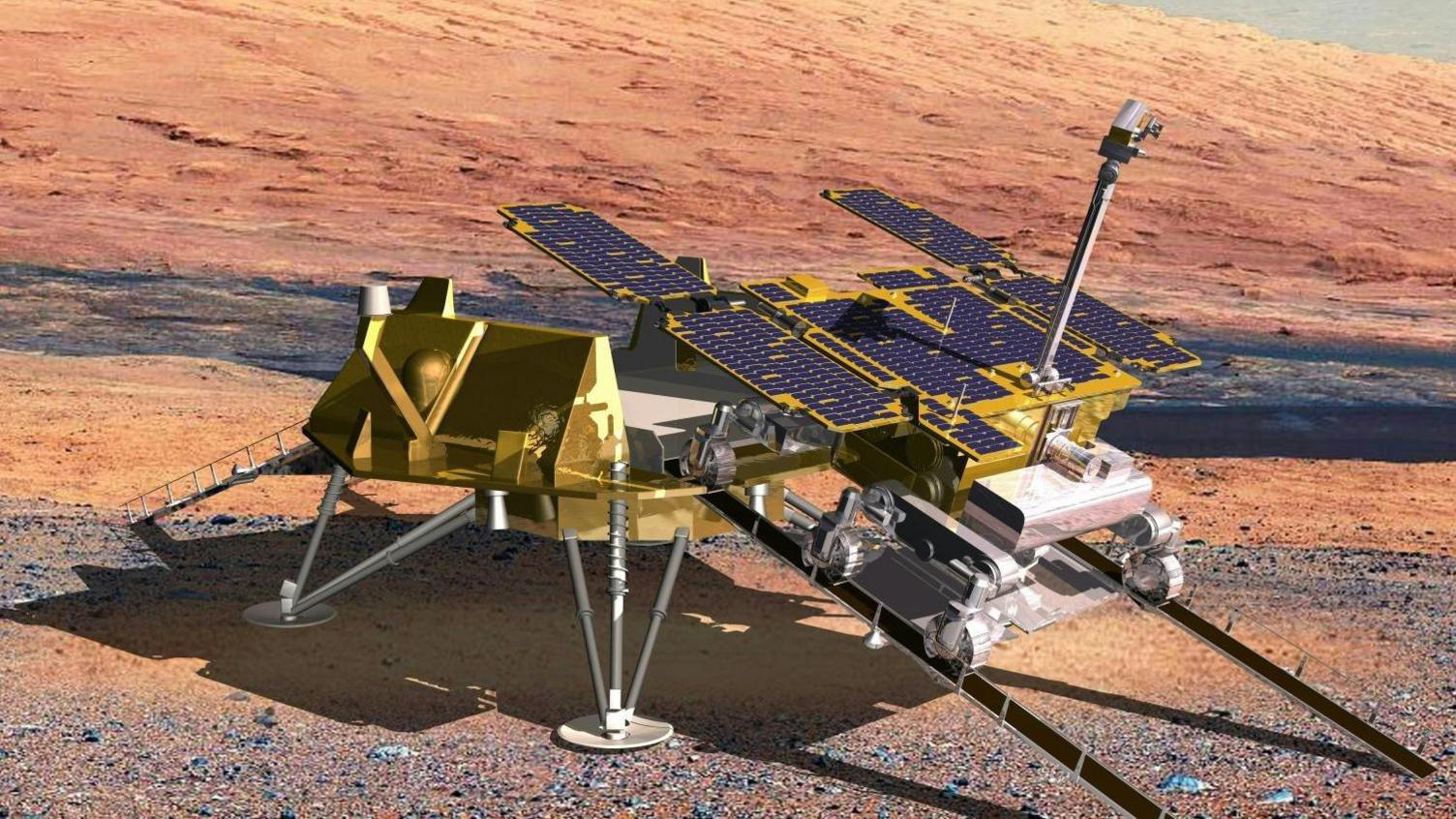
The lander will have two ramps for the rover to get on to the surface of Mars
Thales Alenia Space, a joint venture between French aerospace company Thales and Italian firm Leonardo, have worked with ESA on the project.
Airbus teams will design the landers mechanical, thermal and propulsion systems.
This includes two ramps on opposite sides for the rover to be driven onto the surface with minimum risk.
The UK firm was previously involved with the project when Rosalind Franklin was designed and built in a bio-burden clean-room in Stevenage.
The rover is named after a British DNA pioneer.
Kata Escott, managing director for Airbus Defence and Space UK said: "Getting the Rosalind Franklin rover onto the surface of Mars is a huge international challenge and the culmination of more than 20 years' work.
"The mission will supercharge our space know-how in the UK, and will advance our collective understanding of our solar system."
Peter Kyle, the Secretary of State for Science, Innovation and Technology, said: "Airbus will not only help Britain make history and lead the European space race but also bring hundreds of highly skilled jobs and investment as we secure Britain's future through our Plan for Change."
Get in touch
Do you have a story suggestion for Beds, Herts & Bucks?
Follow Beds, Herts and Bucks news on BBC Sounds, Facebook, external, Instagram, external and X, external.
- Published23 November 2023
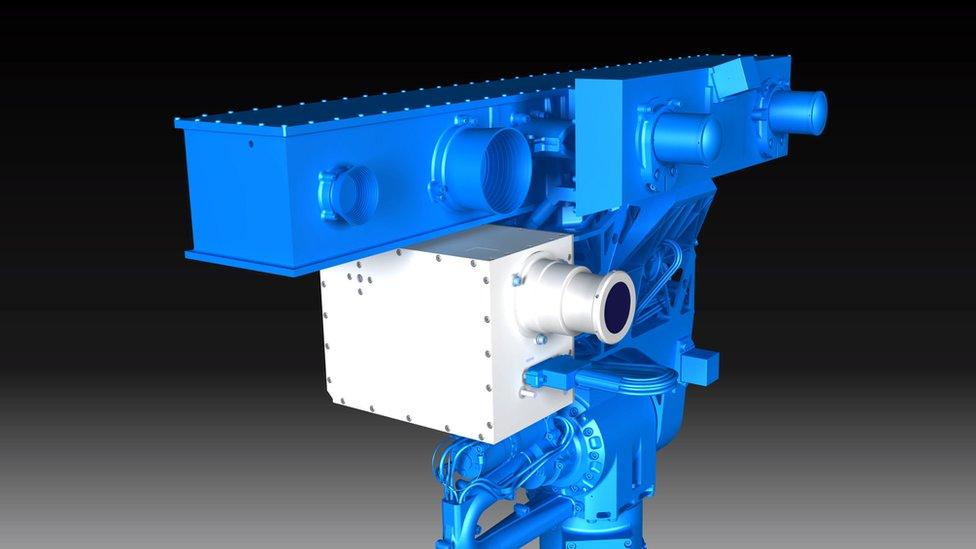
- Published28 February 2022
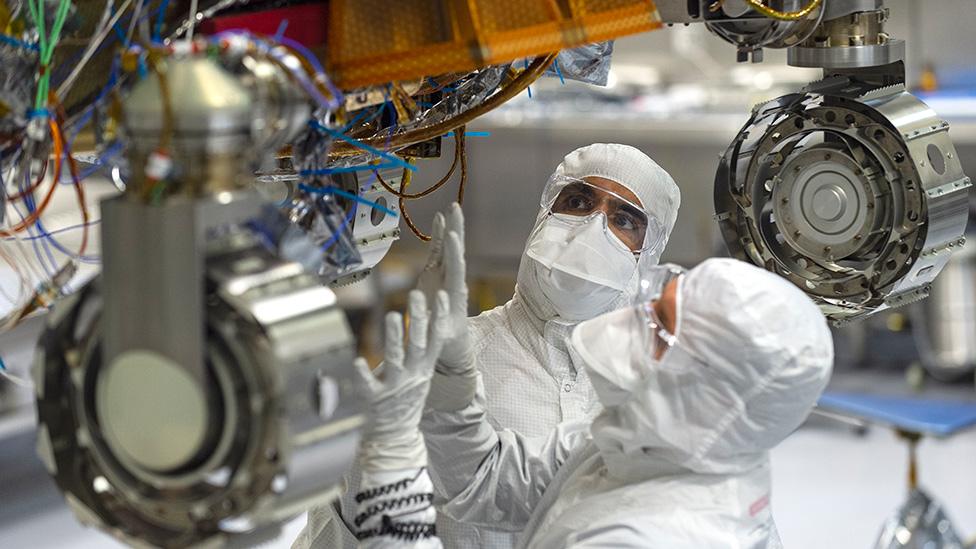
- Published20 October 2022

- Published7 February 2019
